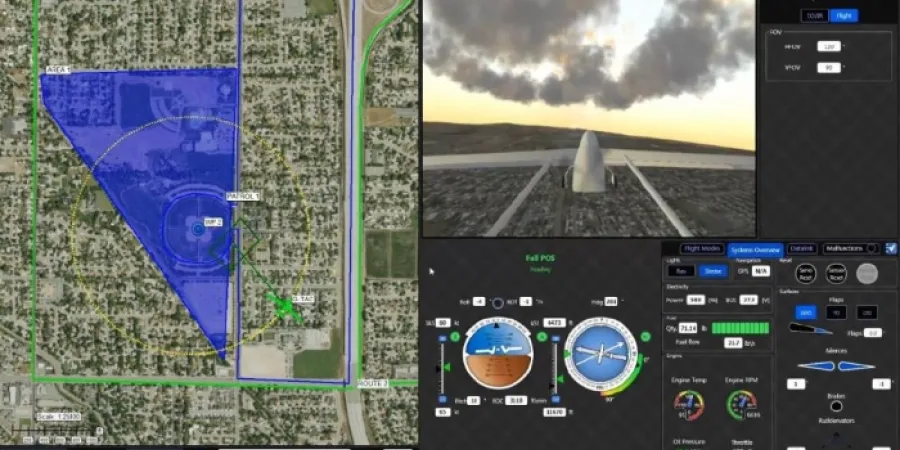Simlat's UAS simulation systems deployed by Purdue University
The American academic institution's UAS program purchased two of the Israeli company's training platforms
Eyal Boguslavsky
| 22/10/2020
Israel's Simlat, a provider of innovative, next generation training solutions for Unmanned Aerial Systems (UAS), announced this week that Purdue University’s UAS Program recently purchased and deployed Simlat’s Polaris UAS traffic management simulation system as well as the company's C-Star UAS flight simulator.
“We are excited to partner with Simlat and incorporate this innovative technology into our UAS program,” said Dr. Damon Lercel, an assistant professor in the program at the university in Indiana.
According to Simlat, POLARIS provides simulated UAS traffic at scale, simulating the behavior of “rogue” or malfunctioning UAS, while also generating the clutter made by thousands of automated flights. The UAS flight simulation is based on C-STAR, which provides the training environment for building the skill set necessary for modern UAS operations. It supports basic to advanced training, from routine operations such as takeoff and landing through advanced piloting skills such as safe recovery in emergency. It also supports mission training in various applications like first responders and wind farm inspections, to name a few.
“This technology will provide students a safe environment to learn and explore UAS air traffic operations, develop and test various emergency scenarios, and experience future UAS applications through virtual reality,” Lercel said.

Photo: Simlat
The American academic institution's UAS program purchased two of the Israeli company's training platforms
Israel's Simlat, a provider of innovative, next generation training solutions for Unmanned Aerial Systems (UAS), announced this week that Purdue University’s UAS Program recently purchased and deployed Simlat’s Polaris UAS traffic management simulation system as well as the company's C-Star UAS flight simulator.
“We are excited to partner with Simlat and incorporate this innovative technology into our UAS program,” said Dr. Damon Lercel, an assistant professor in the program at the university in Indiana.
According to Simlat, POLARIS provides simulated UAS traffic at scale, simulating the behavior of “rogue” or malfunctioning UAS, while also generating the clutter made by thousands of automated flights. The UAS flight simulation is based on C-STAR, which provides the training environment for building the skill set necessary for modern UAS operations. It supports basic to advanced training, from routine operations such as takeoff and landing through advanced piloting skills such as safe recovery in emergency. It also supports mission training in various applications like first responders and wind farm inspections, to name a few.
“This technology will provide students a safe environment to learn and explore UAS air traffic operations, develop and test various emergency scenarios, and experience future UAS applications through virtual reality,” Lercel said.
Photo: Simlat



